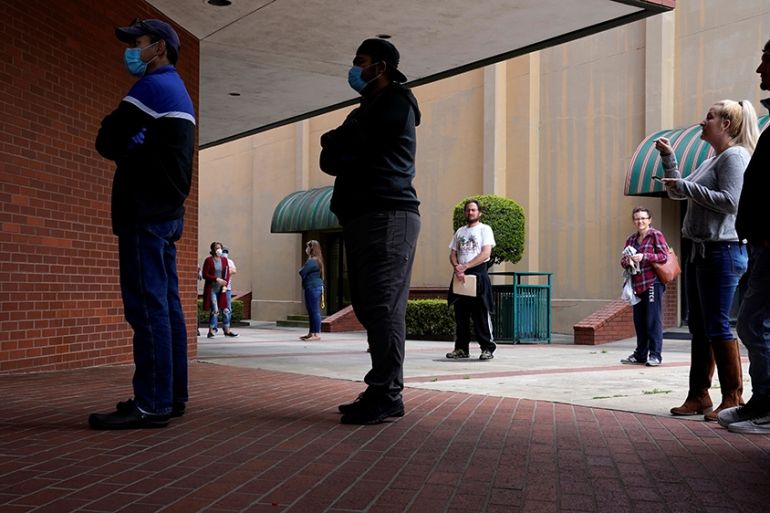Low-income workers are bearing brunt of coronavirus job losses
Nearly 40 percent of US adults working in February with a household income below $40,000 reported a job loss in March.

The economic fallout of coronavirus is ravaging the financial lives of millions of people in the United States. But a new survey by the Federal Reserve released on Thursday showed low-wage workers are getting hit disproportionately.
The Fed’s Report on the Economic Well-Being of US Households found that financial conditions changed dramatically for American workers who either lost their jobs or had their hours reduced in March or the beginning of April as coronavirus lockdowns shuttered businesses and sent consumers retreating behind closed doors.
Keep reading
list of 3 itemsSome 36.5 million Americans have lost their jobs in past 2 months
Fauci: Consequences could be serious if US states reopen too soon
Nearly one in five adults who were working in February either lost their jobs or had their hours reduced in March or the first week of April. Over a third of those experiencing these disruptions said they would have trouble paying their bills in April.
Low-income workers bore the brunt of the labour market collapse, with nearly 40 percent of adults who were working in February with a household income below $40,000 reporting a job loss in March.
Federal Reserve Chairman Jerome Powell highlighted this statistic during a webcast yesterday in which he warned that the US could be looking at a prolonged spell of economic weakness and said more government spending may be necessary to avoid long-term economic damage.
Of those who lost jobs, nine out of ten said that their employers indicated that they would return to their work at some point, though generally, people were not told specifically when that would happen. Only 14 percent were given a specific date, or they had already returned to work.
“It is difficult to predict, however, how long layoffs will ultimately last,” said the report.
As employment took a hit, so did incomes, with 23 percent of adults saying their incomes were lower in March than in February. Among those who were laid off or had hours reduced, some 70 percent said their income had declined.
Some 64 percent of adults who were thrown out of work or had hours cuts said they would be able to pay their bills in full in April, but they were less likely to be able to cope with an unexpected $400 expense.
The explosion of remote work was captured by the Fed. Just over half of those who were working in the last week of March did at least some of it from home, while 41 percent did all of their work from home. By comparison, in October 2019, only seven percent of people working for someone else usually worked from home.
Remote work favoured those with a higher education, with 63 percent of workers with at least a bachelor’s degree working entirely from home compared to only 20 percent of those with a high school degree or less, and 27 percent of those who had some college or an associate’s degree.
In addition to the broader job market disruptions wrought by coronavirus lockdowns, the Fed highlighted the additional financial challenges workers could face if they or someone close to them falls ill with COVID-19.
While 53 percent of employed adults said they could take two or more weeks of paid leave if they got sick with coronavirus symptoms, one in five employed adults said that they could not take any time off without suffering a loss in income.